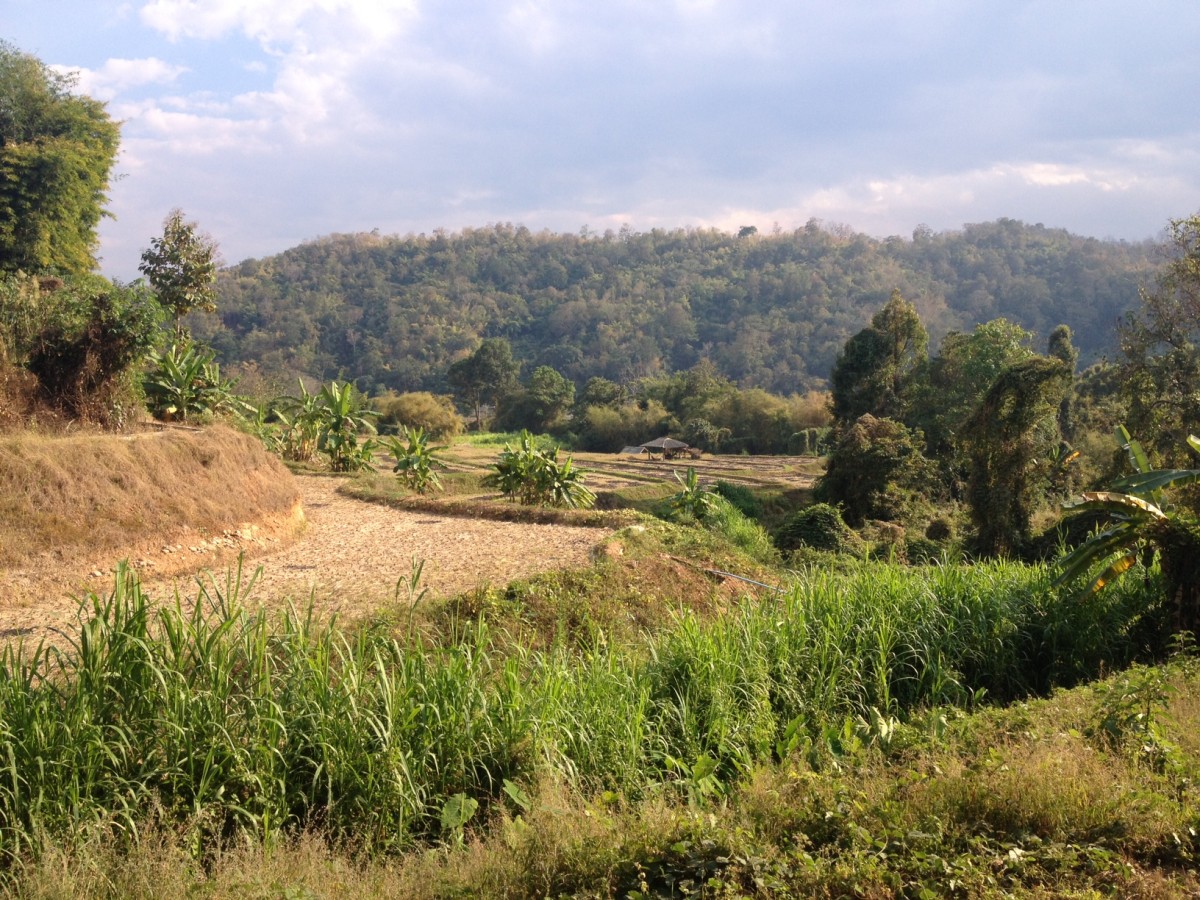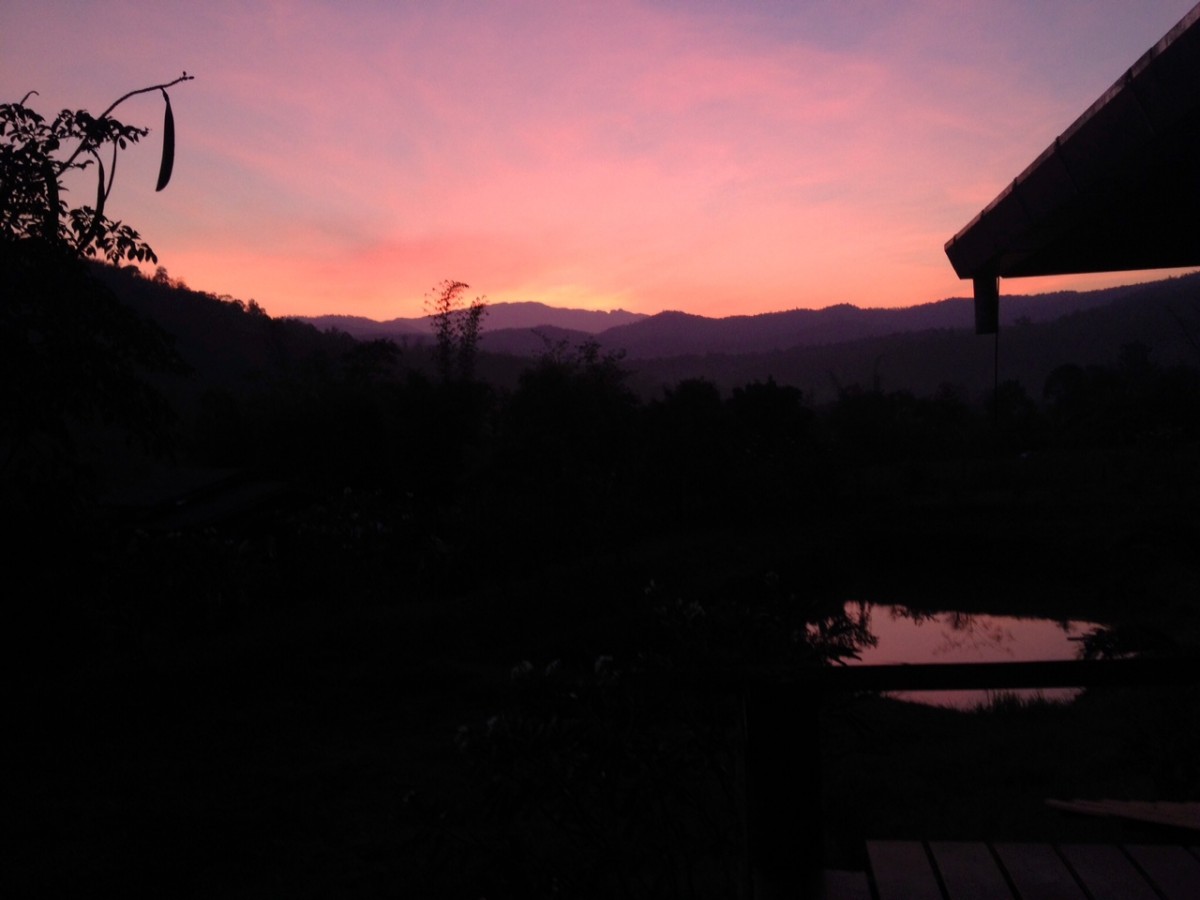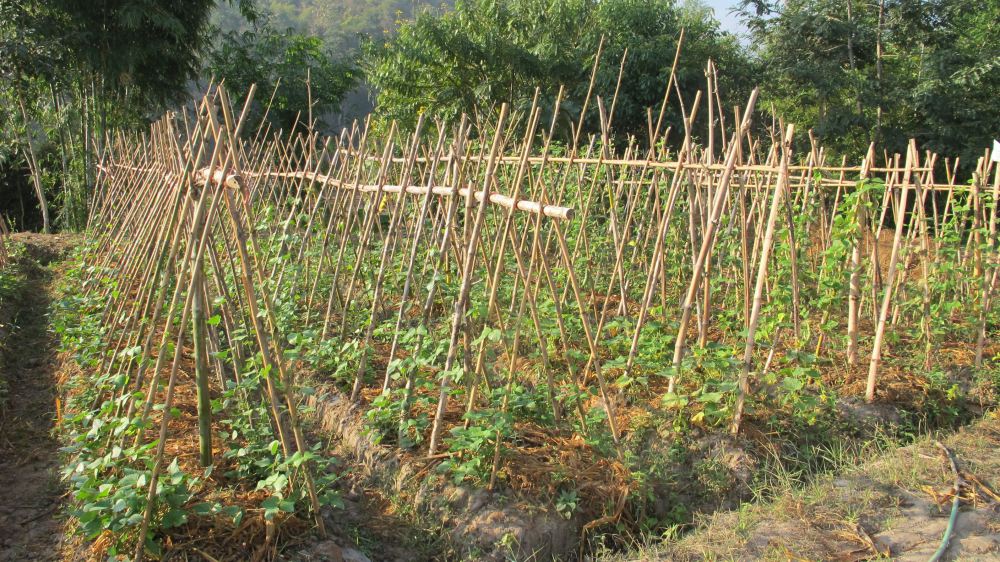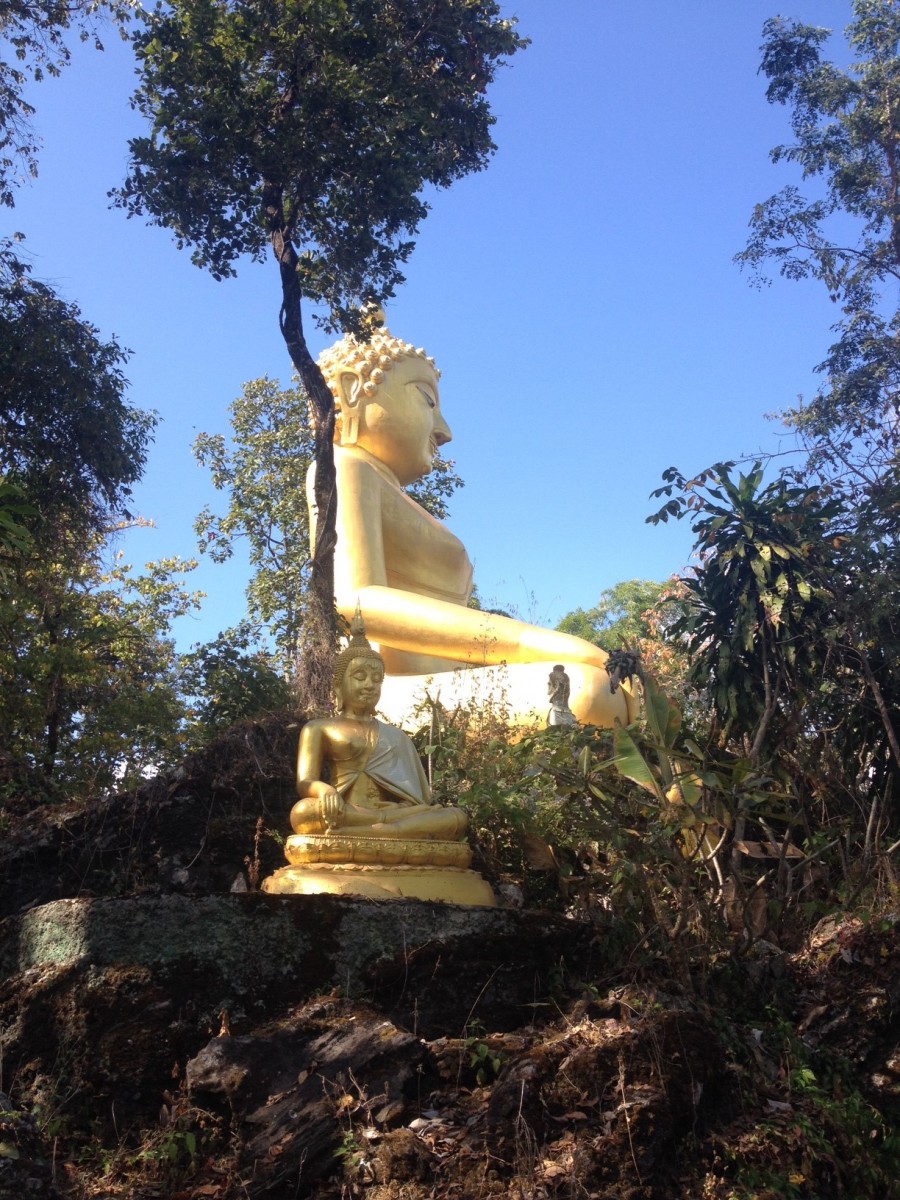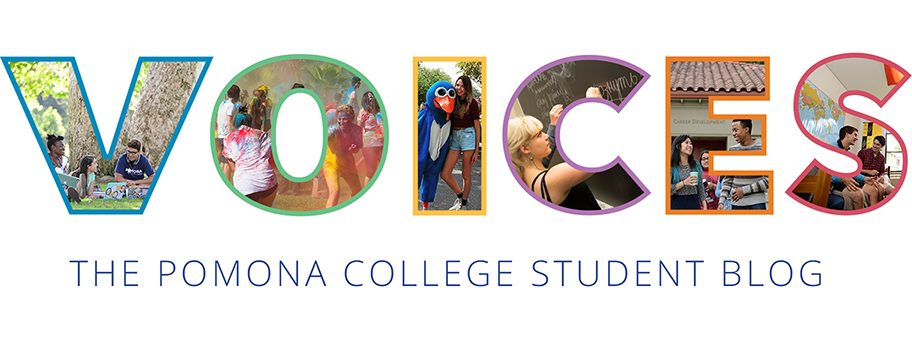Extending my post-study abroad travels through winter break means I don’t get to spend the holidays at home. Luckily, I get to spend them on a 10-acre organic farm in the tropical hills of northern Thailand — not a bad alternative.
I am spending 17 days WWOOFing at Mae Mut Garden, doing volunteer work in exchange for room and board.
In the past 2 weeks, I have learned so much — probably as much as a semester at school, but in an entirely different vein: I’m learning practical skills. While Pomona is a wonderful intellectual community, it’s not necessarily a bastion of practical knowledge, as evidenced by masses of first-years struggling to use laundry machines for the first time and the fact that we can depend entirely on the dining halls for all our meals.
What have I learned here? Simply put, how to live in rural Thailand. I’ve learned how to make mud bricks by stomping barefoot in a pit of red clay mud. I’ve learned how to make papaya salad. I’ve learned how to use a machete to split bamboo. How to heat water with a compost pile. How to drive a moped on dusty dirt roads. How to plant tomatoes. How to shower with a bucket of cold water. How to make a garden bed. How to prune mulberry trees. How to make cow manure tea. The intricacies of plumbing and the water pipe system.
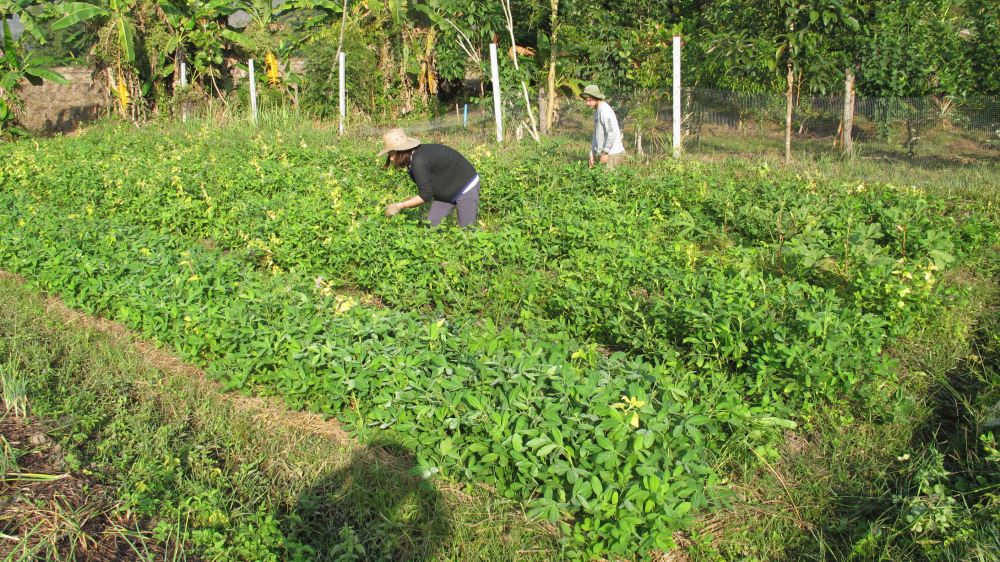
I’ve also learned some very basic Thai (mostly through communicating with local workers), visited temples, gotten to know the village of Mae Mut, met our elephant neighbors, and participated in Thai traditions, such as giving alms to monks on New Year’s Day.
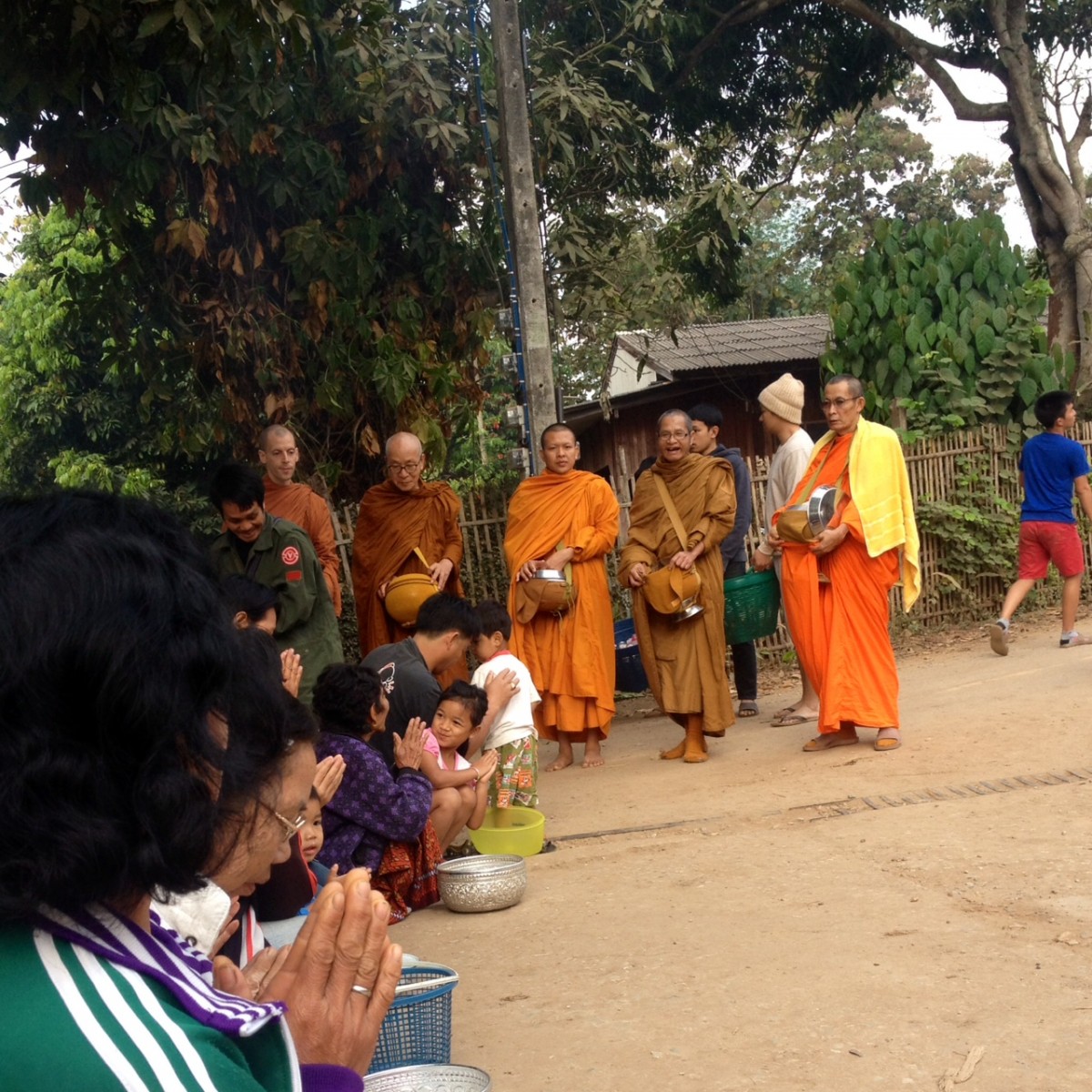
This kind of learning is so important — as busy college students, we so often take advantage of what is given to us, even the very basics: water, food, shelter. Where does our water come from? (A big question in drought-ridden Southern California.) How and where is our food grown and how does it get to us? How were the buildings we inhabit built?
Learning about abstract ideas or high-level policies is great, but in a time where we consume so much on a daily basis, it’s also important to gain some understanding of the very things that we depend on to survive. As liberal arts college students, let’s not forget practical learning. Not everyone has the opportunity to live on a farm in Thailand, but we can all consider where all our goods and services come from and maybe even start learning to do some of it ourselves.
What can you do? Get your hands dirty at Pomona’s Organic Farm, which holds weekly volunteer hours, workshops, fresh produce farm stands, and more. Check out the solar panels on top of Sontag and Pomona dorms to see where some of our energy comes from. Compost your food scraps, then watch the awesome Compost Cart take them down to the Farm. See where leftover dining hall food goes by helping the Food Recovery Network deliver it to a local shelter. Visit the Claremont Farmer’s Market on Sunday mornings. There are plenty of ways to learn about consumption, sustainability, and practical living on campus — and I encourage everyone to get out there and do it!
